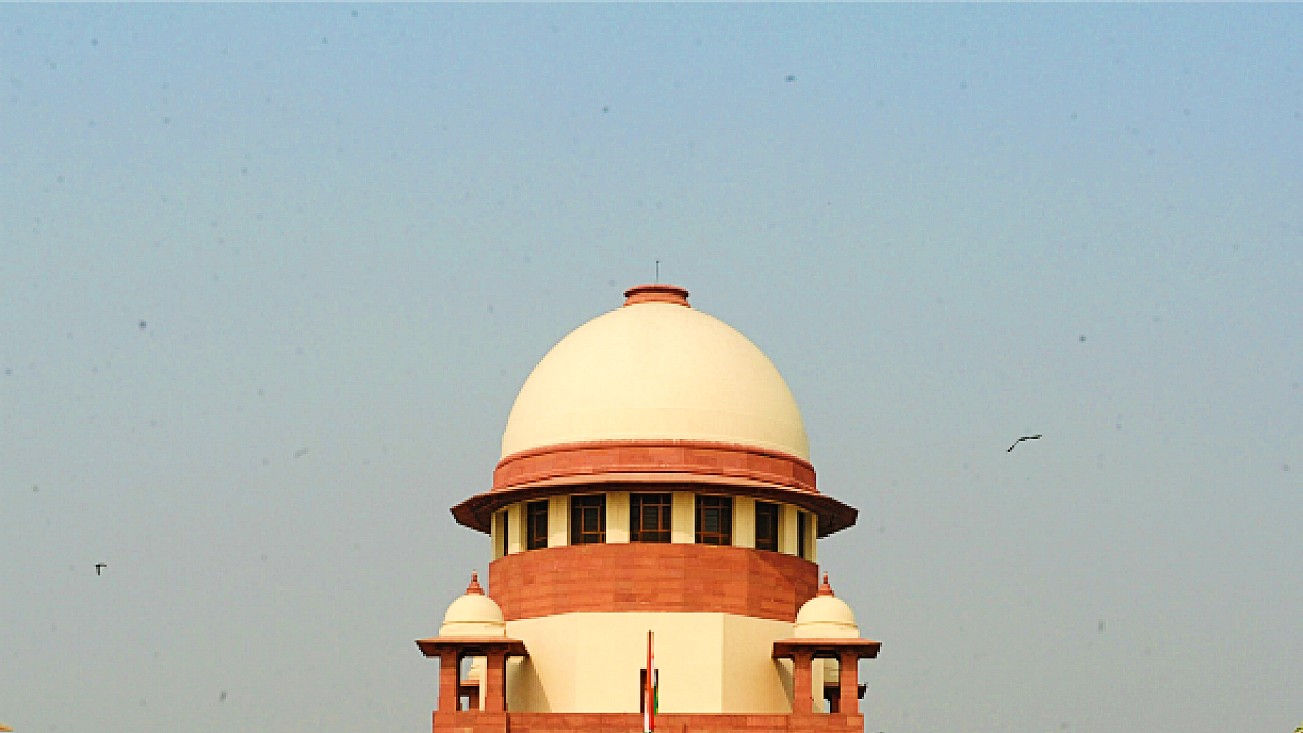Top Court upholds order summoning woman in cheating case for solemnizing marriage with the appellant without obtaining divorce from her first husband
Justices C.T. Ravikumar & Rajesh Bindal [26-04-2024]

Read Order:ANIRUDDHA KHANWALKAR v. SHARMILA DAS & OTHERS [SC- CRIMINAL APPEAL NO. 2272 OF 2024]
LE Correspondent
New Delhi, April 29, 2024: In a case of cheating where the respondent-woman married the appellant by showing a fake decree of divorce, the Supreme Court has restored the Magistrate’s order directing issuance of process against her and two other women for the offence punishable under Section 420 read with Section 120-B, IPC.
The facts as available on record were that the marriage of the appellant was solemnized with the respondent no.1 in 2018 in the presence of the respondent nos. 2 and 3. Having come to know that on the date, the respondent no.1 had solemnized marriage with the appellant, she was already married and had not obtained divorce from her first husband, the appellant filed a petition under Section 11 of the Hindu Marriage Act, 1955 before the Principal Judge, Family Court, Shivpuri (M.P.) seeking annulment of marriage between the appellant and the respondent no.1.
Subsequently, the appellant preferred a complaint under Sections 495, 420, 468, 471 and 506 read with Section 34, IPC against the respondent nos.1, 2, and 3 in which the Magistrate directed issuance of process against the respondent no.1 for the offences punishable under Sections 494 and 420 read with Section 120-B, IPC, and against the respondent nos. 2 & 3 for the offence punishable under Section 420 read with Section 120-B, IPC.
The aforesaid order was impugned by the accused persons/respondent nos. 1 to 3 by filing Revision Petition which was partly allowed by the Sessions Court. The appellant challenged the order of Sessions Court before the High Court. The same was upheld. It was against the aforesaid two orders, the appellant approached the Top Court.
The appellant submitted that both the parties namely the appellant and the respondent no.1 came in contact through a matrimonial site and the fact that respondent no.1 was earlier married was even disclosed by her on the matrimonial site.
At the time of meeting the appellant was shown a smudged copy of the divorce order but the date could not be seen clearly and it was stated that the order was pending signatures of the Judge It was also submitted that the respondents dishonestly misrepresented that they were not financially well, and thereby induced the appellant to part with Rs 2 lakh and bear the entire expenses of the marriage.
The appellant had also submitted that when respondent no.1 visited the doctor for a checkup, she was found to be pregnant. She wanted to undergo an abortion, but when confronted by the appellant, the reason she gave was that she had not yet obtained divorce from her previous marriage and the document which was shown to him on mobile phone was forged. It was argued that this shows that the consent for marriage was obtained dishonestly.
The Division Bench of Justice C.T. Ravikumar & Justice Rajesh Bindal noted that the respondents had shown to the appellants an unclear photocopy of the decree of divorce which was believed to be true. On 11.03.2018, the appellant gave his consent for the marriage and the date was fixed.
The respondents pointed out that their financial condition was not good to come to Gwalior for the marriage along with their other relatives. As a result, the appellant booked tickets for the respondents and their relatives from Visakhapatnam to Gwalior and vice-versa, and also gave Rs 2 lakh cash to the respondents as expenditure for marriage.
It was observed that when the appellant was told that she is yet to get divorce from her previous husband, it was a shock of life for the appellant. It was nothing else but cheating by showing a fake decree of divorce. It was for this reason only that the respondent no.1 wanted to get the pregnancy aborted.
“The appellant felt cheated. When he was told that he would take action against the respondents, he was threatened with criminal cases of various matrimonial offences, which he claimed to have been filed”, the Bench said.
As per the Bench, the Sessions Judge failed to appreciate the fact that certain events had taken place thereafter, namely, apprising the appellant about the decree of divorce having been passed and showing the forged copy thereof to him on mobile. The Sessions Court had considered the revision against the summoning order as if after trial the findings of conviction or acquittal was to be recorded. It was a preliminary stage of summoning.
“For summoning of an accused, prima facie case is to be made out on the basis of allegations in the complaint and the pre-summoning evidence led by the complainant”, the Bench said while further adding, “...in our opinion the approach of the Learned Sessions Court and the High Court in setting aside the summoning order against the accused persons i.e. respondent nos.1,2 and 3 under Section 420 read with Section 120-B IPC is not legally sustainable.”
Noting that a prima facie case was made out for issuing process against the respondents to face trial for the offence punishable under Section 420 read with Section 120-B, IPC, for which they were summoned, the Bench allowed the appeal and restored the order of the Magistrate.
Sign up for our weekly newsletter to stay up to date on our product, events featured blog, special offer and all of the exciting things that take place here at Legitquest.




Add a Comment